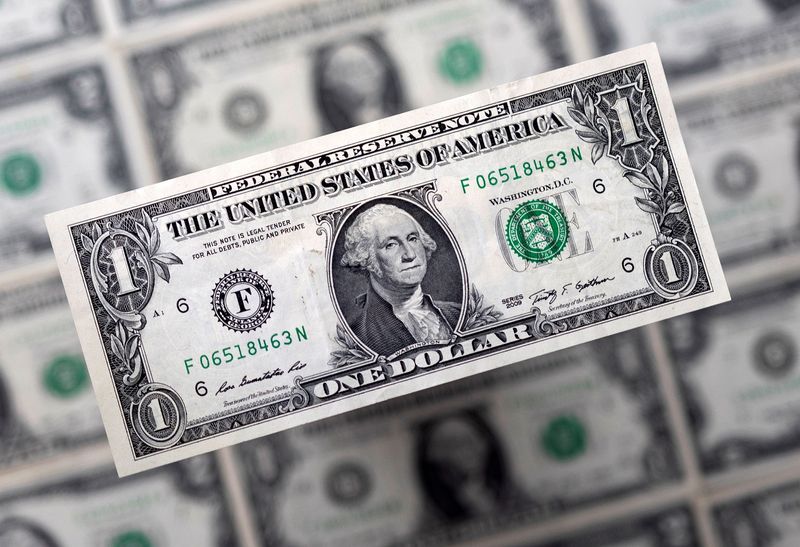JACKSON HOLE, Wyoming (Reuters) - Preventing the $25 trillion U.S. Treasury market from seizing up in a future crisis, as it did at the onset of the COVID-19 pandemic, could mean having the Federal Reserve on standby for unlimited bond purchases when needed, a new analysis published Friday suggests.
"US Treasuries are expected to provide excellent safe-haven services in a 'dash for cash' because of the anticipated depth and liquidity of the market in which they are traded, even during a crisis when many large investors are simultaneously liquidating their Treasuries," Stanford University business school professor Darrell Duffie wrote in a paper presented at the Kansas City Fed's annual economic symposium in Jackson Hole, Wyoming.
But that didn't happen in March 2020, in large part because dealers simply did not have enough room on their balance sheets to handle the deluge of Treasury sales from investors panicked by the unknowns of a global pandemic.
Treasury trading nearly ground to a halt, imperiling the functioning of global financial markets, until the Fed jumped in to buy hundreds of billions of dollars of bonds that helped to free up space on dealer balance sheets.
"The implications of dealer capacity limits for Treasury market resilience may worsen in future years because the quantity of Treasury securities that investors may wish to liquidate in a crisis is growing far more rapidly than the size of dealer balance sheets," Duffie told the gathering of central bankers. "Backstopping the liquidity of this market with transparent official-sector purchase programs will further buttress market resilience."
Future bouts of Treasury market illiquidity could also be made less likely with broader use of central clearing, Duffie wrote, as well as changing the way regulators assess bank capital levels.

Financial authorities made such a change temporarily after March 2020, but allowed the so-called Supplementary Leverage Ratio exemption to sunset a year later.
Other changes could include technical changes to market function to encourage direct buying and selling without dealer intermediation, Duffie wrote.